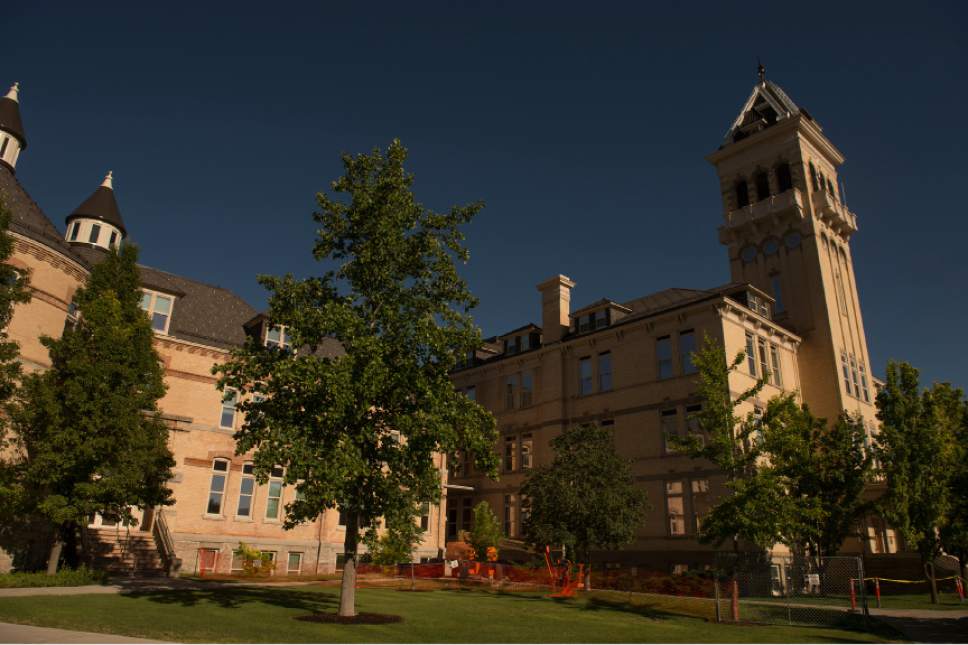This is an archived article that was published on sltrib.com in 2016, and information in the article may be outdated. It is provided only for personal research purposes and may not be reprinted.
When Mike Twohig heard this summer about the sexual assault allegations lodged against former Utah State University linebacker Torrey Green, he offered his services to the school.
Twohig, an associate psychology professor at USU, previously was the director of a sexual assault prevention program at the University of Nevada. He had experience in this tough topic, he said, and wanted to help.
Fast-forward to Friday, when Twohig was named chairman of USU's Prevention, Education and Training Working Group, tasked with developing and implementing ways to prevent sexual violence.
That group is one of several created as part of the school's response to concerns raised in July when The Salt Lake Tribune reported that four women — who did not know each other — separately reported to Logan police in 2015 that Green sexually assaulted them. Three of the women were USU students and say they also informed the school.
Prosecutors began re-examining the cases after The Tribune's story was published, and last week Green was charged with four counts of rape, one count of aggravated kidnapping and one count of forcible sex abuse. He is in jail in California, awaiting extradition to Utah.
Under Title IX, a federal law that bars sex discrimination, schools that receive federal funding are required to swiftly investigate potential sexual violence and determine what occurred and whether there were more incidents.
The school has said an internal investigation revealed it "fell short" in handling the reports against Green but will not elaborate, saying the information is protected by federal law and could discourage victims from reporting sexual assault. In August, it released a list of eight recommendations for improving its approach to sexual assault.
The two other working groups announced Friday will examine and, potentially, revise sexual assault complaint and investigation processes, as well as develop a campus climate survey to gauge students' attitudes and understanding of sexual assault, among other things.
The groups will submit suggestions to a Sexual Violence Task Force, headed by Executive Vice President and Provost Noelle Cockett, said Tim Vitale, university spokesman. There is no time line for completion, he added.
The groups are looking "comprehensively at addressing the multiple issues of sexual violence and to suggest actions," Vitale said. "In some cases, that action will have an immediacy, and in other cases, it will become part of a number of proposals that will be prioritized."
The committee leaders were picked because of their subject matter expertise, with input from students, staff and administrators, Vitale said.
Other committee members have not yet been picked, and it is unclear when they will start meeting.
Also on Friday, a committee was formed that will be in charge of implementing Title IX policies, as well as education and prevention efforts.
Other ways USU is responding to concerns about sexual assault include a campus education campaign about consent, as well as changes to student housing personnel training materials on mandatory reporting.
School officials also are working on changes to the student code related to confidentiality, as well as clarifying mandatory reporting and anonymous reporting policies. All changes need approval of the university board of trustees.
Additionally, officials are developing an agreement with law enforcement and other community groups to spell out how and when information is shared, Vitale said.
Logan police, who received all four initial complaints against Green in 2015, previously told The Tribune no communication existed between its department and school officials about the former athlete.



